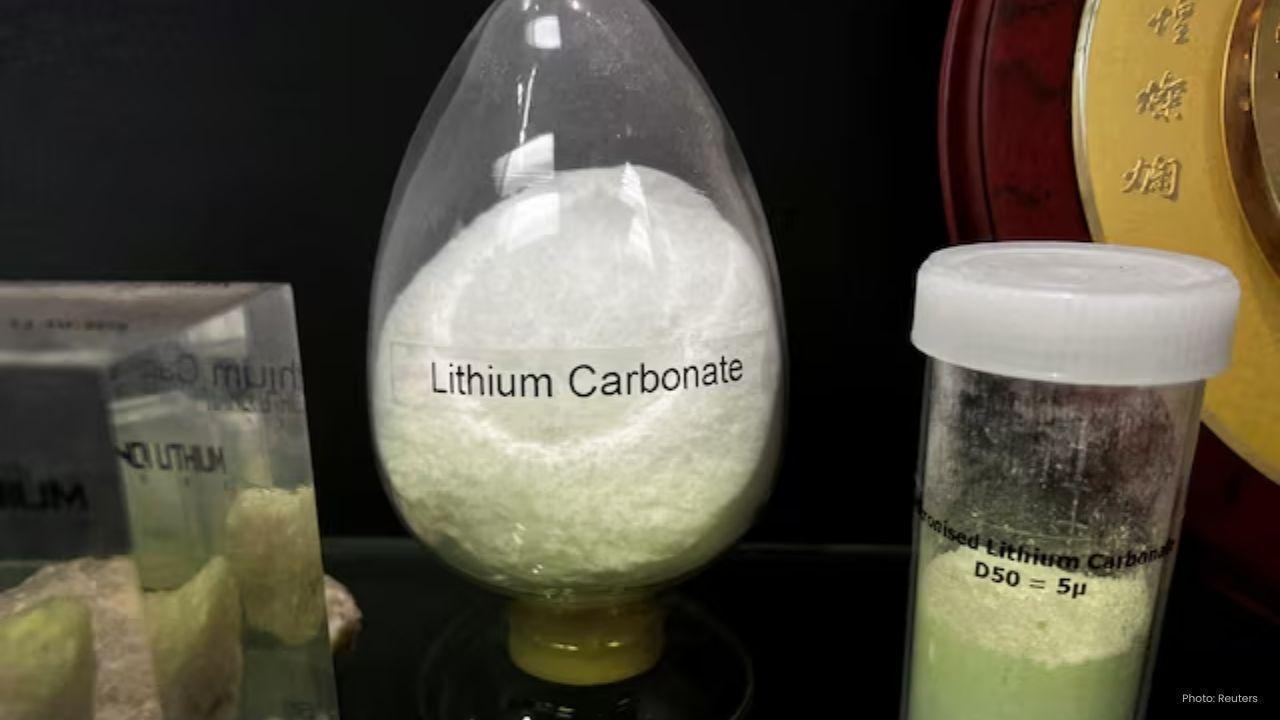
Post by : Vansh
In today’s fast-paced world, the term Hypertech is becoming more than just a buzzword—it’s a reality shaping our homes, cities, workplaces, and even bodies. The age of Hypertech refers to an era where smart technology is seamlessly integrated into every aspect of life, enhancing convenience, efficiency, and connectivity. From refrigerators that order your groceries to cities that manage traffic using AI, the future is here—and it’s intelligent.
Hypertech refers to the next evolution of technology that includes artificial intelligence (AI), Internet of Things (IoT), machine learning, robotics, 5G, and augmented reality. These technologies are not just innovations—they are transformational forces that are interwoven into our daily lives.
At its core, Hypertech connects devices, analyzes data instantly, and enables systems to make decisions in real-time. Imagine a hospital where AI diagnoses patients faster than a doctor or a home that adjusts lighting, security, and temperature based on your mood and preferences. That’s the essence of living in a hyper-intelligent world.
One of the most visible applications of Hypertech is in smart homes. Devices like Amazon Alexa, Google Nest, and Apple HomeKit are not just digital assistants—they are the foundation of a connected home ecosystem. These tools use voice commands, learning algorithms, and data to control appliances, lighting, music, and more.
Refrigerators can now suggest recipes based on what's inside, and washing machines can schedule their own maintenance. With smart home systems, you can lock your doors, check your security cameras, and control your thermostat—all from your smartphone, even if you're halfway across the world.
Urban development is being revolutionized through smart cities, which use Hypertech to enhance public services, reduce environmental impact, and improve citizens’ quality of life. Cities like Dubai, Singapore, and Amsterdam have adopted smart infrastructure where traffic lights adjust based on congestion, and garbage bins notify collection services when they’re full.
Public transportation uses real-time GPS and AI to avoid delays. Pollution sensors guide city planners on environmental changes. Streetlights dim when no one is around, conserving energy. In essence, smart cities are becoming living, breathing entities that respond to their inhabitants’ needs intelligently.
Perhaps one of the most life-changing uses of Hypertech is in healthcare. Hospitals now employ AI systems that analyze thousands of case studies in seconds to diagnose illnesses with astonishing accuracy. Remote surgeries using robotic arms and 5G connectivity are no longer science fiction.
Wearables like smartwatches monitor heart rate, oxygen levels, and even detect irregular heartbeats. These devices alert medical professionals instantly during emergencies. With smart healthcare, patients experience better outcomes, faster diagnoses, and continuous monitoring—all powered by Hypertech.
Businesses are also being reshaped by Hypertech. Automated workflows, virtual meetings in the metaverse, and AI-driven analytics are changing how people work. Tools like ChatGPT and Copilot are helping employees with content creation, coding, research, and customer service.
Employees now collaborate with AI, which can handle repetitive tasks, freeing humans to focus on creativity and innovation. Smart workplaces are increasing productivity, reducing costs, and enhancing work-life balance.
From smart glasses that translate languages in real-time to AI-based shopping assistants that recommend products you didn’t know you needed, Hypertech is everywhere. Cars are now self-driving, drones deliver packages, and AI-powered music platforms curate your playlist based on your emotions.
Education has also transformed. Students now learn through virtual reality experiences that take them back in time to ancient Rome or deep into the solar system—without ever leaving the classroom.
While Hypertech brings enormous benefits, it also raises critical questions. Privacy concerns are at the forefront. The more data these devices collect, the more users need to be aware of how that data is used and stored. Cybersecurity is a major issue as more devices become connected, making systems vulnerable to hacking.
Furthermore, there’s a growing concern about job displacement as automation becomes more widespread. However, most experts agree that while some jobs will vanish, new roles will emerge that we haven’t even imagined yet.
Looking ahead, Hypertech will only become more immersive. Experts predict that with quantum computing, biotechnology, and AI, we’ll soon see interfaces that allow humans to control devices with their thoughts.
Hyperloop transportation, drone taxis, and AI companions might become commonplace. Every interaction—from shopping and working to learning and healing—will be enhanced by intelligent technology designed to simplify and enrich our lives.
The information presented in this article is for general awareness and educational purposes only. While efforts have been made to ensure accuracy and relevance, readers are encouraged to verify details from official or updated sources before making any decisions based on the content. The views expressed do not represent official policy unless stated otherwise. This content is published in good faith by MiddleEastBulletin.










Pageau's Overtime Goal Propels Islanders to 4-3 Victory Over Golden Knights
In a thrilling overtime finish, Jean-Gabriel Pageau leads the Islanders past the Golden Knights 4-3,

MLB Awards: deGrom and Acuna Jr. Shine as Comeback Players
Jacob deGrom and Ronald Acuna Jr. celebrated MLB Comeback Player Awards, alongside Ohtani and Judge

Portugal Confronts Ireland in Pivotal World Cup Qualifier
Portugal, led by Cristiano Ronaldo, faces Ireland in a vital Group F World Cup qualifier that could

Haaland's Brilliance Leads Norway to 4-1 Victory Against Estonia
Erling Haaland showcases leadership as Norway crushes Estonia 4-1, boosting their World Cup ambition

Hawks Triumph Over Jazz; Suns and Raptors Secure Victories
Hawks' Onyeka Okongwu and Jalen Johnson lead in a thrilling win against Jazz; Suns and Raptors also

Indian Men's Recurve Team Clinches First Asian Gold in Nearly Two Decades
The Indian men's recurve team triumphed over South Korea, securing their first Asian gold in 18 year